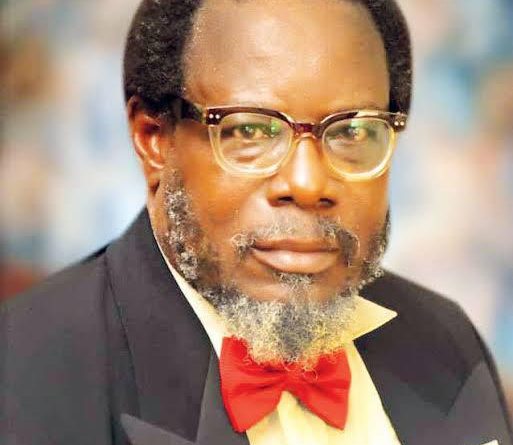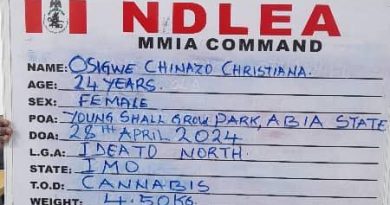CACOL Celebrates 2022 International Anti-Corruption Day
Around nineteen (19) years ago and precisely on October 31, 2003, the entire world through the international umbrella, the United Nations Convention number 58/4, declared every 9th of December each year as the World Anti-Corruption Day, in line with emerging concerns about what constitutes Corruption and its effects on societies, especially on the developing nations.
The 2022 International Anti-Corruption Day (IACD) with the theme “Uniting the World Against Corruption” seeks to highlight the crucial link between anti-corruption and peace, security, and development. At its core is the notion that tackling this crime is the right and responsibility of everyone, and that only through cooperation and the involvement of each and every person and institution can we overcome the negative impact of this crime. States, government officials, civil servants, law enforcement officers, media representatives, the private sector, civil society, academia, the public and youth alike all have a role to play in this.
Corruption is a major impediment to peace, security and development. From education to the environment, from business to sports, from gender equality to access to justice, and more – corruption undermines all areas of society’s development.
Corruption, conflict and instability are meanwhile profoundly intertwined. Corruption not only follows conflict but is also frequently one of its root causes. It fuels conflict and inhibits peace processes by undermining the rule of law, worsening poverty, facilitating the illicit use of resources, and providing financing for armed conflict.
The leadership of the country has seen corruption as a monster that has to be destroyed lest it destroy the country itself. Corruption in Nigeria appears to be ubiquitous and takes many forms: from massive contract fraud to petty bribery; from straight-up embezzlement to complicated money laundering schemes; from pocketing the salaries of nonexistent workers to steering plum jobs to relatives and friends. It has indeed become a constant phenomenon. In 2012, Nigeria was estimated to have lost over $400 billion to corruption since its independence. In 2021, the country ranked 154th in the 180 countries listed in Transparency International’s Corruption Index. The fight against corruption has remained a constant priority for the Government of H.E. President Muhammadu Buhari since its inception in 2015. Corruption has been identified as one of the main spoilers of Nigeria’s ambition to achieve the 2030 Agenda for Sustainable Development and, in particular, of its aspiration to lift more than 100 million Nigerians out of poverty in the next 10 years. The efforts made to prevent and counter corruption in its various manifestations have earned Mr. President the role of the African Union’s Anti-Corruption Champion.
Recently, the Minister of Information, Alhaji Lai Mohammed, announced that the Nigerian government had realised at least N120 billion as proceeds from criminal financial operations since the Bill on Proceeds of Crime Recovery Management was signed into law earlier this year by President Muhammadu Buhari. His administration, through the anti-graft agencies, has arrested, detained and even prosecuted some public office holders, the latest being the country’s accountant-general for the staggeringly monumental fraud he’s been perpetrating for years but we want to see a situation where Mr. President is holding people to account. It is not just a few; it has to be holistic. We expect more firm actions from the president and that actually is missing in some instances. The use of state pardon to set convicted corruption criminals free should be discontinued because a convicted
Inasmuch as we want to appreciate the efforts of this administration in tackling corruption, we believe that more stringent penalties must be put in place and the judiciary must also cooperate to nip this shameful act in the bud in the country. We need to take a cue from other countries of the world that have taken anti-corruption fight to the level whereby all their citizens know that there are grave consequences for any act of corruption.
For example, in January 2021, China executed a former top banker accused of taking $260 million worth of bribes and other forms of corruption. Lai Xiaomin, the former chairman of Huarong — one of China’s largest state-controlled asset management firms — was put to death by a court in the northern city of Tianjin. The Chinese Supreme People’s Court, which reviewed and approved the execution order, was quoted as saying “the amount of bribes received by Lai Xiaomin was extremely large, the crime’s circumstances were particularly serious and the social impact was particularly severe”.
Although, we don’t support death penalty, but we are of the opinion that corruption cannot be effectively defeated in the country when convicted criminals get minimum jail sentences, plea bargaining and a “go and sin no more” verdict thereby having ample opportunity to enjoy their loots. The various anti-corruption agencies must tidy up their investigations, ensure diligent prosecution of corruption cases and the judiciary must ensure that corruption cases are speedily and timely dispensed with.
Government officials, appointed board members, heads of MDAs, and even Ministers most of whom are politicians or political appointees have constituted themselves into impediments for the smooth operation of these anti-corruption agencies. The fact that these agencies rely on these government officials and appointees for their expenditures to be approved and released, they are unable to do anything contrary to what these set of government officials dictate to them. The government officials direct the affairs of these anti-corruption and regulatory agencies and exercise absolute control over their activities. This has contributed to be a major clog in the wheel of progress to the agencies particularly in the area of carrying out their due diligence in investigation and prosecution. Until these impediments are removed, we should not expect the anti-corruption agencies to perform better than they are presently doing.
Against this backdrop, we suggest that the major anti-corruption and other regulatory agencies (i.e EFCC, ICPC, NAFDAC, NDLEA, SON etc.) should be given full autonomy or independence by funding them from first line charge, so that they would be removed from the control of various supervising Ministers who are politicians and who would want to protect their fellow politicians at all cost.
Government should remove incentives that make corruption intractable problems like pardoning corruption convicts which are capable of demoralizing investigators, witnesses, prosecutors and courageous judges who make convictions possible. Moreover, pardoned corruption convicts can also take revenge once they secure their freedom by going after investigators, witnesses, prosecutors and judges that convicted them.
The recently announced CBN’s policy which limits daily cash withdrawals to N20, 000 and weekly withdrawals of N100,000 for individuals is one that can open the corruption window in the long run. The policy did not take into consideration the people in the rural areas where everything is done in cash and bank’s presence in these areas is either relatively low or non-existent. The policy doesn’t seem to consider the unbanked and internet network deficient communities that have to travel several kilometers to resolve banking disputes and errors as well as those who don’t have usable telephone devices and the huge number of those who currently engage in POS business who may lose their source of livelihood if the policy is implemented as planned.
We at CACOL, are intensifying our Public Enlightenment campaigns through grassroots engagement and interventions. We are also vigorously intensifying our engagement of the Media and collaborating with relevant Stakeholders towards ensuring that corruption is finally extirpated or minimized within the body polity, in line with United Nations resolution against corruption.
Debo Adeniran
Chairman, CACOL
08037194969




